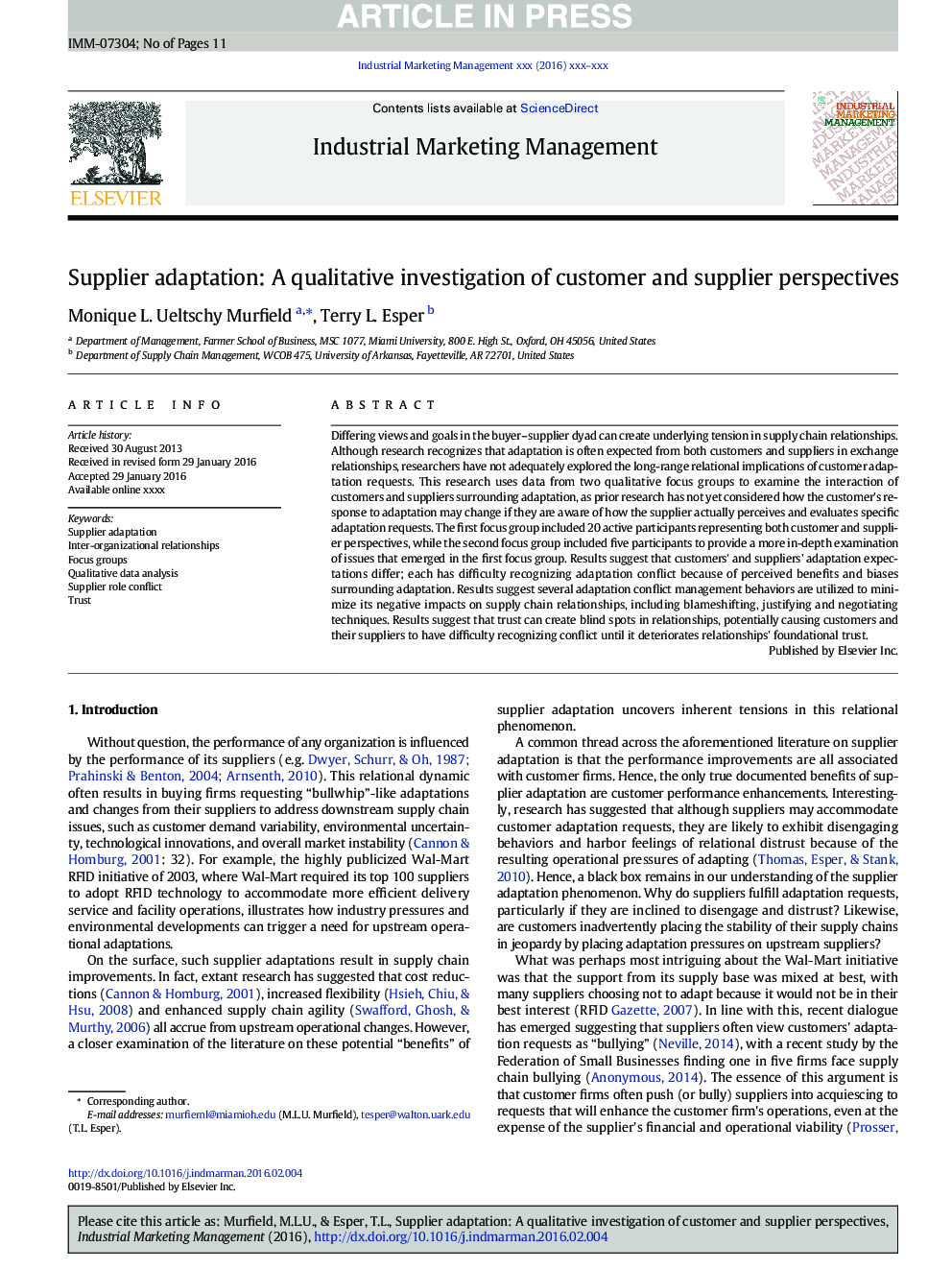| Article ID | Journal | Published Year | Pages | File Type |
|---|---|---|---|---|
| 5111167 | Industrial Marketing Management | 2016 | 11 Pages |
Abstract
Differing views and goals in the buyer-supplier dyad can create underlying tension in supply chain relationships. Although research recognizes that adaptation is often expected from both customers and suppliers in exchange relationships, researchers have not adequately explored the long-range relational implications of customer adaptation requests. This research uses data from two qualitative focus groups to examine the interaction of customers and suppliers surrounding adaptation, as prior research has not yet considered how the customer's response to adaptation may change if they are aware of how the supplier actually perceives and evaluates specific adaptation requests. The first focus group included 20 active participants representing both customer and supplier perspectives, while the second focus group included five participants to provide a more in-depth examination of issues that emerged in the first focus group. Results suggest that customers' and suppliers' adaptation expectations differ; each has difficulty recognizing adaptation conflict because of perceived benefits and biases surrounding adaptation. Results suggest several adaptation conflict management behaviors are utilized to minimize its negative impacts on supply chain relationships, including blameshifting, justifying and negotiating techniques. Results suggest that trust can create blind spots in relationships, potentially causing customers and their suppliers to have difficulty recognizing conflict until it deteriorates relationships' foundational trust.
Related Topics
Social Sciences and Humanities
Business, Management and Accounting
Marketing
Authors
Monique L. Ueltschy Murfield, Terry L. Esper,
